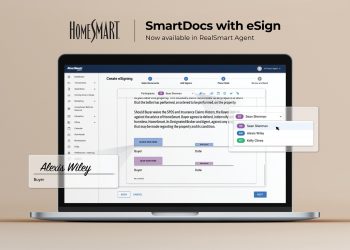U.S. Department of Housing and Urban Development (HUD), through the Federal Housing Administration (FHA), has announced that effective December 21, 2022, it will allow homeowners with FHA-insured mortgage financing to obtain flood insurance policies that conform to FHA requirements from private insurance providers.
The change was announced through a final rule published in the Federal Register Monday and in a companion Mortgagee Letter, also published Monday, that provides implementation guidance for FHA-approved lenders.
FHA requires that insured mortgages for properties in Federal Emergency Management Agency (FEMA)-designated Special Flood Hazard Areas (SFHAs) have flood insurance. Previously, only flood insurance obtained through the National Flood Insurance Program (NFIP) was permissible for FHA-insured mortgages, which limited choices for consumers.
“Today, HUD is increasing the flood insurance choices available to individuals and families with FHA-insured loans in areas that FEMA has designated to be at special risk for flooding,” said HUD Secretary Marcia L. Fudge. “Flood insurance is required to ensure families and individuals are prepared if disaster strikes. Increasing consumer options for this important protection is one way we are building more resilient communities in the face of climate change.”
“We know borrowers face affordability challenges right now, yet a flood can be devastating to a family who is not properly insured,” said Federal Housing Commissioner Julia Gordon. “The choice to select a private flood insurance option may enable some borrowers to obtain policies that are less expensive or provide enhanced coverage.”
The National Association of REALTORS® (NAR) applauded the rule, saying it opens the door to private market flood insurance options.
“The National Association of REALTORS® applauds HUD for issuing the FHA final rule opening the door to private market flood insurance options in addition to the National Flood Insurance Program,” said Kenny Parcell, NAR president. “The new rule is a victory for consumers, for choice, and for flood coverage that will protect more borrowers and property from the number one natural disaster in the United States. NAR has long advocated for an updated rule to address an inequality with conventional borrowers, and this action will increase the flood insurance choices available to FHA borrowers.”
NAR explained that the final rule extends to FHA borrowers more insurance choices that have been available to conventional loan holders. The previous FHA rule was written decades ago, when there was no private flood insurance market, NAR explained. The market today is increasingly providing higher quality, lower cost alternative options than the National Flood Insurance Program. Conventional borrowers have been able to choose between NFIP and private policies since most of the federal lending regulators issued a final regulation in 2019. Now, because of this new rule, FHA loan holders will have the option to choose either flood insurance to meet federal coverage requirements. While the FHA rule does not perfectly align with the other federal rules, NAR says it stands ready to work with HUD to address any remaining differences that could create lender confusion.
As part of its implementation, as of December 21, 2022, FHA will require lenders to provide detailed flood insurance coverage information when electronically submitting mortgages for FHA insurance on properties in SFHAs. This data collection is an objective included in HUD’s Climate Action Plan and will allow FHA to capture and analyze flood insurance information on mortgages in its portfolio at a more granular level than has been possible previously.
Ensuring that borrowers are protected against flood risk is a key component of HUD’s Climate Action Plan. In 2021, HUD released its Climate Action Plan in response to President Biden’s Executive Order on Tackling the Climate Crisis at Home and Abroad.
HUD has been implementing this broad approach to the climate crisis that reduces climate pollution; increases resilience to the impacts of climate change; protects public health; delivers environmental justice; and spurs well-paying union jobs and economic growth. The action Monday further guides the integration of climate resilience and environmental justice into HUD’s core programs and policies, HUD noted.
For more information about HUD’s work to advance sustainable communities and address climate change, visit hud.gov/climate.












